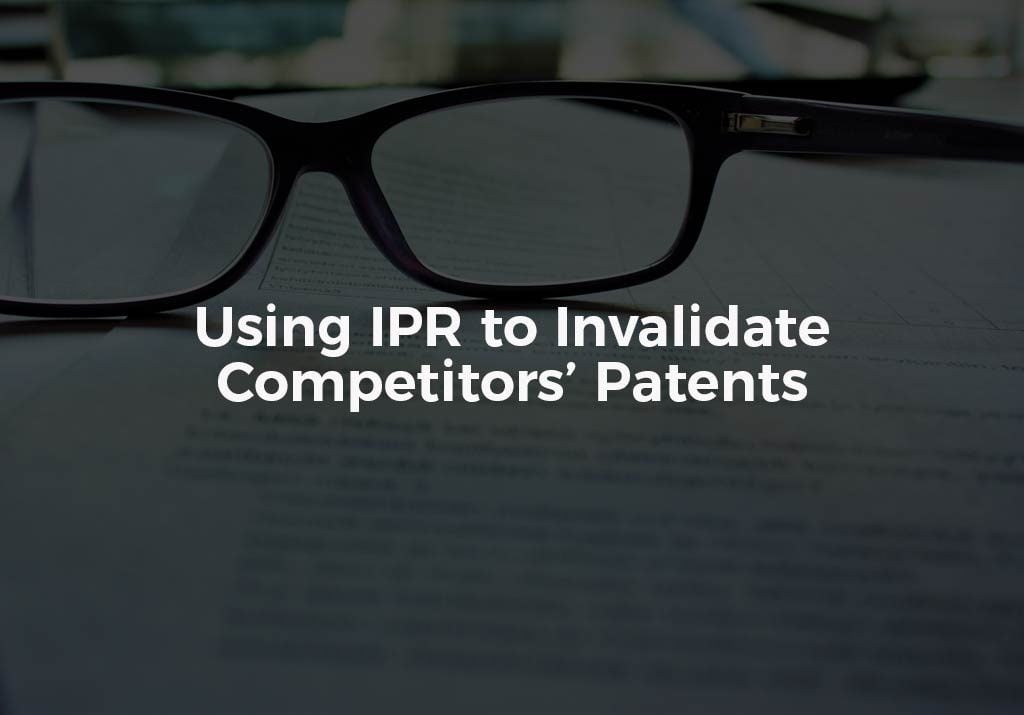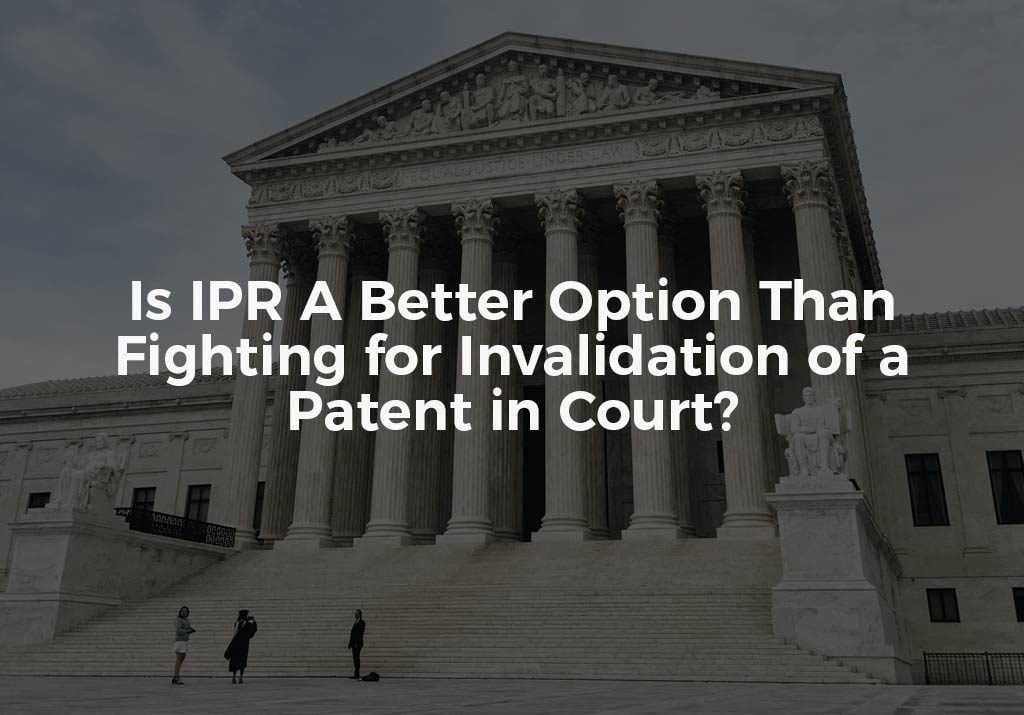IPR is a highly effective and relatively quick path for parties who are seeking to invalidate a patent that was issued by the USPTO. It could be that the patent in question poses a barrier to entry in a market that your business wants to participate in, or your company could stand accused of infringing the patent. Whatever your motivation may be for wanting the patent in question invalidated, IPR may be an appropriate review option for you to consider.
An IPR proceeding asks the Patent Trial and Appeal Board (PTAB) at the USPTO to reconsider the validity of an issued patent. More than 7,000 IPR petitions have been filed to date, and more than half of those went on to be instituted by the PTAB, meaning that the PTAB decided the IPR petition had merit to be reviewed. Approximately half of instituted IPR cases result in a written decision from the PTAB. In those written decisions:
- 19% of instituted IPR patent challenges yielded PTAB decisions where no claims were determined to be unpatentable (i.e., all claims were valid).
- 16% of instituted IPR patent challenges yielded PTAB decisions where at least some of the claims were determined to be unpatentable (i.e., some claims were valid, while others were not).
- 65% of instituted IPR patent challenges yielded PTAB decisions where all claims were determined to be unpatentable (i.e., no claims were valid).
Do Not Abuse the IPR Process
The IPR process is not meant to be used for nefarious purposes, and those who abuse the IPR process can face serious consequences. For instance, using the IPR process as a way to harass a competitor, or as a means for unnecessarily delaying a corresponding litigation in the courts would be an abuse of the IPR process, as would initiating an IPR for the sole purpose of increasing the costs of any legal proceeding for the patent owner. When the USPTO suspects that there is misconduct or an abuse of the IPR process, the Patent Office is authorized under the law to impose sanctions on the offending party. And the PTAB is not afraid to exercise its sanctioning powers.
Atlanta Gas Light Company v. Bennett Regulator Guards, Inc. (IPR 2015-00826) is a cautionary tale for any IPR petitioner. At the conclusion of its IPR proceeding, Atlanta Gas Light was sanctioned by the PTAB because Atlanta Gas Light Company failed to identify a holding company as a real party of interest in its IPR proceeding against patent owner Bennett Regulator Guards, Inc., and then subsequently failed to notify the PTAB when the holding company merged with, and became a wholly owned subsidiary of, another company. Petitioners have a duty to keep the PTAB informed of who the real parties of interest are in the IPR petition, and the PTAB takes this requirement seriously.
Contact A Knowledgeable IPR Attorney
Have a competitor’s patent that you would like to try and have invalidated? The professionals at The Rapacke Law Group can help by working with you to prepare an IPR petition. We can explain the process to you and guide you through the legal requirements for taking advantage of the IPR process. Feel free to contact us if you have any questions or would like to discuss your particular situation.




